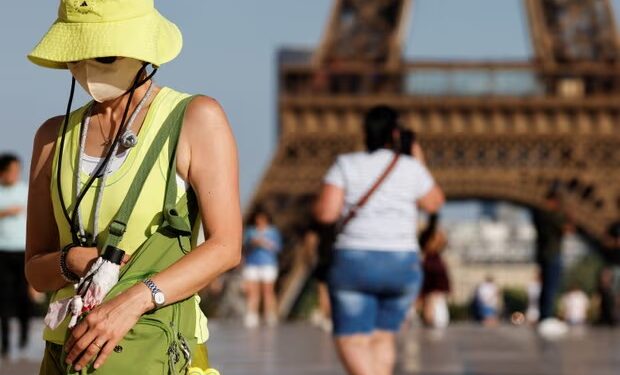The searing heatwave gripping southern and western Europe has begun shifting eastward, bringing extreme temperatures to parts of the Balkans and central Europe, while in France a fierce debate has erupted over the growing reliance on air conditioning amid rising climate concerns.
Forecasters warned on Wednesday that temperatures across eastern Europe are expected to soar above 40°C in the coming days, with Romania, Serbia and Hungary facing heightened risks of heat-related health emergencies and power grid strain. Emergency services in several countries have already begun preparing cooling centres and issuing advisories for the elderly and vulnerable.
In western Europe, where the current heatwave first struck last week, a political row is building in France over the role of air conditioning in combating extreme heat versus its environmental cost. Green lawmakers and climate experts have criticised what they see as an uncoordinated and unsustainable surge in the use of cooling units, particularly in public buildings, shops and transport systems.
Sandrine Rousseau, an MP from France’s Green Party, described the current air conditioning boom as “a climate paradox”, warning that the short-term relief risks fuelling long-term harm. “We are using fossil-powered solutions to survive the very heat those same solutions helped create,” she said in a radio interview.
The debate intensified after reports emerged that the French National Assembly had quietly upgraded its own air conditioning system this spring, prompting accusations of hypocrisy from climate activists and some opposition MPs.
Government ministers defended the measures, citing the need to maintain essential services during prolonged heat episodes. “The protection of public health must come first,” said Agnès Pannier-Runacher, minister for ecological transition. “But we also recognise the need for a serious national strategy on sustainable cooling.”
Meteorologists say the current heatwave is consistent with patterns driven by global warming. Several towns in Spain and southern France broke local temperature records over the weekend, with nights failing to drop below 28°C in some urban areas. Such conditions, experts warn, contribute to rising mortality rates, especially among the elderly and those with chronic illnesses.
In Italy, where heat alerts remain in effect across much of the country, demand for electricity has surged to summer peaks, prompting regional grid operators to issue warnings about potential blackouts. Crops are also under strain, with maize and olive producers reporting signs of damage from prolonged exposure to high temperatures and insufficient rainfall.
The European Commission issued a statement calling for member states to improve climate resilience strategies, with a focus on urban design, early warning systems, and low-energy cooling solutions.
As temperatures continue to climb in the east, health authorities across the region are urging citizens to limit outdoor activity during peak hours and to stay hydrated. Meanwhile, the political pressure to balance immediate heat mitigation with long-term climate goals continues to intensify across capitals.
REFH – newshub finance




Recent Comments